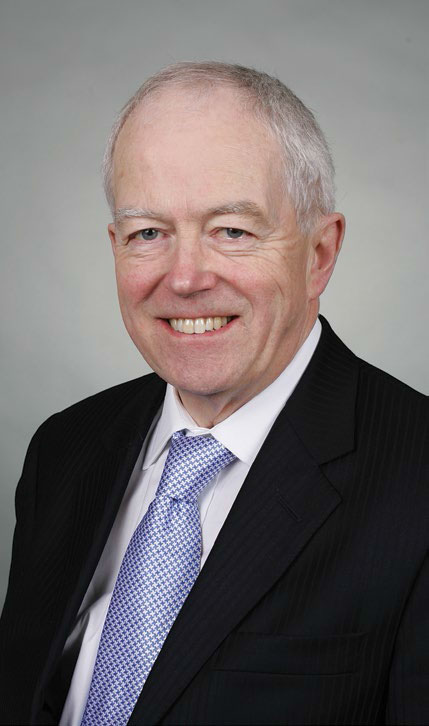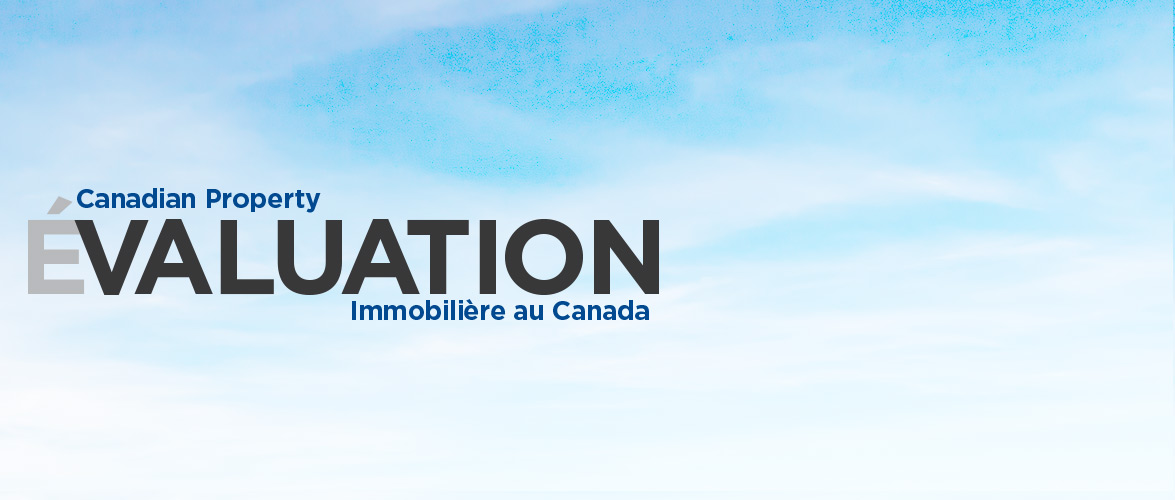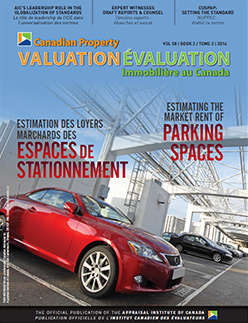AIC’s leadership role in the globalization of international valuation standards – An interview with IVSC’s Sir David Tweedie
Évaluation immobilière au Canada
Rechercher dans la bibliothèque en ligne

“With the leadership of an organization such as the AIC, which is already at the level of professionalism required in all areas, we are optimistic there will be a positive chain reaction and our ultimate goal will be accomplished.”
How do you define international valuation standards (IVS) and their significance within the global economy?
During my time with the IASB, I served as Chairman of the body setting International Financial Reporting Standards (IFRS). Having thus been involved with the successful standardization of accounting rules around the globe, and knowing that the accurate end result of applied accounting rules depends upon proper valuations, our vision with the IVSC is for rules of valuation to also be the same no matter what country is involved. With the IFRS, for example, from a handful of countries initially agreeing to implement common standards, there are now over 120 countries, including Canada, that use them. Our job on the valuation side of the equation is to get agreement on what valuation standards are the best and then get countries around the globe using them so that, wherever a valuation may have been completed, you know it was done in a consistent, professional manner.
After meeting with major valuation organizations such as the AIC and others from the US, China, Australia, the UK and elsewhere around the world, we are now in the process of developing a Memorandum of Understanding (MOU), whereby these organizations agree to move towards a universally accepted set of valuation standards. This does not necessarily mean adopting standards that exist right now, but rather agreed-upon standards that we can have in place in two or three years. The process entails having these international valuation organizations look at each other’s current standards, review how they are different from one another, determine which are best, and then adopt them into practice. There are about a dozen of these leading organizations that have agreed in principle to what we are trying to accomplish and that have signed on to undertake this process that we hope will lead to the ultimate adoption of international valuation standards.
“If a country’s rules of valuation are different from the rest of the world, people will begin to ask why they are different and whether or not someone is hiding something.”
Why are international valuation standards so important in today’s economy?
When the worldwide financial crisis hit, markets were tumbling out of control. In fact, they actually froze to the point where no transactions were even taking place. I was an ex-officio member of the financial stability board, and I, like many others, assumed there was an organization dealing with this situation… an organization that could get things moving again in an orderly fashion. We soon found out that no such organization existed. The stability of our banks was in question and it was difficult to accurately value their assets, since there was no common way of conducting those valuations. As a result, the IASB had to set up a task force of bankers, auditors, regulators, etc. that, within a couple of months, had to determine what needed to be in place in illiquid markets so that sound transactions could occur, not a series of fire sales. We had to come up with a way of determining values so that transactions could take place in a more orderly market. That alerted me to the fact that there is a major problem with the valuation of financial instruments that affect such vital business measuring and reporting tools as balance sheets and profit and loss statements. For example, if it is determined that banks have to hold a certain percentage of net assets as a capital base, how do you accurately determine the value of those net assets? This lack of consistent methodologies and standards affects stability issues, financial reporting issues, and, to a significant degree, real estate and business valuations. It is completely pervasive.
Whether you are an investor or a regulator, you need to know that assets have been valued fairly and properly. When looking at a set of accounts, you need to know that they have been valued in the same way as they are everywhere else. You need to know that it is not a case of something being valued far too aggressively or far too conservatively. In order to accomplish that, there needs to be consistent and reliable benchmarks.
As well as giving more security to investors and regulators, an internationally accepted set of standards also reduces the risks for companies’ evaluating their own assets. If they are being too aggressive in their valuations, then they could have major problems for which they are held responsible.
Why is it important for the AIC to align the Canadian Uniform Standards of Professional Appraisal Practice (CUSPAP) with the IVS?
When someone from another country is examining Canadian valuations or looking to invest in Canada, it is important to know that the valuations have been done the same way, with the same sorts of models and assumptions. If a country’s rules of valuation are different from the rest of the world, people will begin to ask why they are different and whether or not someone is hiding something. The idea is not to have Canada abandon its CUSPAP, but rather to know that the general principles of CUSPAP and IVS are the same.
How does the AIC compare with other valuation associations in developed countries in regards to its alignment with IVS?
The AIC is a huge supporter of what the IVSC is trying to accomplish. As a country, Canada is very international and supportive of internationalism. Canada was a great leader in establishing international accounting standards and the AIC is doing likewise when it comes to valuation. The IVSC and AIC are currently in discussion with the MOU and should have that worked out in the next few months. Going forward, there may be some uniquely Canadian issues and add-ons that have to be addressed and maintained, but we are confident the ultimate goal will be realized.
What are the biggest challenges of this alignment among countries?
There have not been many issues where Canada is concerned, but the usual challenges involve what I call the three Cs. You have to change, there is a cost involved in changing, and you have to give up a degree of control. If you want a consensus on global standards, sometimes you cannot get everything you want. There needs to be a realization that there is a bigger game out there online casino. If you have a variety of institutions and individuals doing things in a variety of different ways, it all starts to fall apart. It is better for everyone if there is consistency. This is really a case of moving to the highest level, not the lowest common denominator. We all need to aim for the best.
What is the international community’s perception of the AIC in regards to its standards, education, quality of designated members, and other key programs and structures?
The AIC is held in very high regard, both in Canada and beyond. That is one of the reasons why the IVSC wanted to be associated with the AIC. When we saw that the AIC recently renewed its educational agreement with the University of British Columbia, it was extremely important to us. We truly believe in the importance of organizations having rigorous educational programs.
One of the things we are after is a consistent valuation designation. Unlike the accounting profession, which has the three universally recognized designations of CPA, CA and ACCA, valuation designations around the globe are very inconsistent. Some countries have no designations, some have as many as five or six, and others have designations that are not very clear or identifiable as to what they represent. Our objective is for the institutes to agree on entry requirements, exams, ethical rules, continuing professional development, disciplinary requirements and other key elements of their designation process. While some organizations may have a few of these things, the AIC has them all. That is the level we want the profession to reach on an international basis.
If the bodies agree, one suggestion would be to add a suffix (i.e., an additional designation) to their existing designations, whereby, provided their members have met the requirements, they would earn the right to add something along the lines of ‘International Real estate Valuer’ to their designations. People seeing this extra suffix on the designation would know instantly that this valuer is at a level recognized worldwide. For what they have accomplished, we want to differentiate these appraisers from what I term “the cowboys.”
There is a great deal of work yet to be done. However, we are encouraged by the support and interest that exists within the world’s appraisal community. Our role is one of coordination, and with the leadership of an organization such as the AIC, which is already at the level of professionalism required in all areas, we are optimistic there will be a positive chain reaction and our ultimate goal will be accomplished.
“The process entails having these international valuation organizations look at each other’s current standards, review how they are different from one another, determine which are best,
and then adopt them into practice. “





